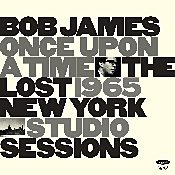Recent Jazz Recordings by Local Artists
Pianist, composer, and educator Michael Malis continues to release new music: right after Three Pieces for Piano, reviewed in our last issue, comes Dualisms, a quartet of new duets that was recorded in October of last year and is scheduled for full release on July 3. This is an ambitious album that combines a standard set of music that is available for download on Bandcamp, combined with four hand-made linocuts by Zara Teicher, the leader’s essays and sheet music, and well-made videos of all four performances. Malis writes about recent changes in his approach to life and art and explains the complex intentionality behind the music, what he calls a “manifesto of symbology.”
The first track, “Five Card Draw,” a duet with percussionist Thom Monks, combines symbolism with aleatoric process: elements on standard playing cards are interpreted as a form of rhythmic notation — the players draw cards from a deck and then improvise on the revealed patterns.
Then follow two duets with baritone saxophonist Kaleigh Wilder, composed in memory of poet Mary Oliver, who died in January of last year. Based on one of her best known poems, the compositions take apart the first two lines as their titles: “We shake with joy,” and “we shake with grief” (the final line reads “What a time they have, these two housed as they are in the same body”). The contrast between the pithy mini-poem and the two long “Devotions — in memoriam Mary Oliver” create a new artistic space that blends emotion, poetry, and music as well as improvisation and composition, anchored in an almost telepathic soundscape created by two performers who have obviously attained a unique spiritual and instrumental bond. Malis is a highly rhythmic pianist who likes to create powerful dense repeated left-hand patterns that take the place of a whole orchestra. Wilder takes full advantage of this, weaving her equally powerful improvisations over and inside the piano barrage. The unadorned context allows one to hear her baritone playing in detail and to admire her supreme command of the instrument with an impressive subtle command of the whole tonal palate of the horn. Malis, for all his thoughtful modernist research in music and art is quite a romantic, and this is where the two meet, uniting in melodic expressive purpose and quickly anticipating each other’s moves. This music covers a wide emotional gamut, true to the Oliver poem, and when the two musicians break out of subtle melody and engage the palette of so-called extended techniques, their coming together and apart is equally telepathic.
The album ends with something quite different: “We’ve Got to Find a Way,” a contemporary riff on and complete reshaping of Marvin Gaye’s “What’s Going On,” first recorded in 1970. Rather than redo the song in some jazz fashion, Malis creates a new one in dialog with the original, with a synthesized musical wash and rhythmic patterns in the background and the distinctly classical voice and diction of baritone Denzel Donald intoning the words, subtlety shifting the texture of repeated phrases and imbuing them with powerful growing emotion, while Marvin Gaye and his musicians respond, echo, or provide background for the new composition, as Malis creates his own patterns on electric piano. The imaginative choice of a strong operatic voice in such a context is artistically and politically notable. The focus is primarily on the title phrase of the original, a powerful invocation of the lack of progress in social equality and justice for the African American community over the last half century. It all fades to Larry Nozero’s classic soprano saxophone phrase that began the original recording and ends with the bass guitar of James Jamerson, a vivid memory of Detroit roots.
Although recorded just before the pandemic hit and coming out in a time of powerful social protest, Dualisms is a frighteningly prescient multimedia meditation on our times, reminding us that the injustices, cruel discrimination, and social pathologies that conditioned the present situation have been with us for centuries. In truly artistic fashion, Malis has fashioned a thoughtful creative manner of articulating the emotional crises of our times through poetry and music.
And now for something completely different. Pianist, keyboardist, composer, arranger, and producer Bob James has had a long commercially successful career on the fringes of jazz, playing well-crafted music of a type that garners Grammys but is often of little interest to serious jazz fans. But throughout his career he has performed and recorded some very good creative work that well demonstrates his accomplished piano technique, harmonic knowledge, and refined melodic sense. Those who only know his fusion or disco work, or his music for the TV show Taxi, may be surprised to learn just how adventurous his first recordings were. His jazz beginnings took place while he lived in Ann Arbor from 1957 to 1962 where he studied composition and piano at the University of Michigan School of Music.
While here, he formed a trio with Ron Brooks on bass and Bob (later known as Cleve) Pozar on drums playing at the long-gone Falcon Bar on 4th Ave. and recording the Verve album Bold Conceptions and later Explosions on ESP. All three were to have long if very different careers in music. Brooks stayed in the area becoming a major force on the scene both as a bassist and for a good run as the proprietor of the Bird of Paradise jazz club on Ashley St., followed by a second incarnation on Main St. in Ann Arbor and is playing to this day. Pozar, who died last year, was the most radical of the three and went on to play and teach music in different places, experimenting with electronics, exploring Afro-Cuban percussion traditions, working with people such as Bill Dixon, and schooling children in complex rhythms. One of their grand moments was playing and recording in 1964 with the grand woodwind master Eric Dolphy, documented in research by Ralf Dietrich on the pages of this publication in 1999.
A year later, in January of 1965, James was touring as a member of the trio backing the great singer Sarah Vaughn when he went into the studio with Pozar and bassist Larry Rockwell from the band he was working with to record four tracks, and followed that with four more tunes that December with Detroit-raised Bill (now Vishnu) Wood and UM-educated drummer Omar Clay. James moved on in other musical directions and these recordings were shelved and forgotten until recently when they were released as Once Upon a Time: The Lost 1965 New York Studio Sessions on the resonance label.
This is a lovely find: classic modern jazz trio music played with originality within the ramifications of the style of the day. On Bold Conceptions James, Brooks, and Pozar had explored ways of extending the interpretation of standards by interpolating elements taken from contemporary classical and free improvisation jazz styles, while Explosions went much further out. By 1965 James had left much of the experimentation behind and was working in a more conventional style clearly influenced by Bill Evans. His classical studies had clearly helped develop a subtle sense of harmony, and his melodic sense, well observed on his earliest recordings and undoubtedly reinforced by his work with Vaughn, shines well here. The first set is more structurally varied than the second, undoubtedly because of the participation of Pozar, as the trio shifts tempos and rhythmic organization, most prominently on the title track “Once Upon a Time.” The next tune, “Lateef Minor 7th” and “Variations” are the more reminiscent of the more experimental early recordings, with out of tempo passages and all three exploring various unconventional sounds on their instruments. There is an impressive economy of means here: every note seems to be deliberately chosen with no fluff and every device serving the structure and mood of a tune.
The second session is more conventional, beginning with Sonny Rollins’ boppish “Airegin,” which is showcase for fleet piano improvisations, followed by a very slow atmospheric version of “Indian Summer” that stays with you as a memorable ballad performance. The session ends with a looping medium tempo blues that begins in an understated manner and then features bass and drums that build up before coming down again for the restatement of the theme. James has returned often in recent year to playing straight ahead jazz and in this context, it is salutary to discover these never-issued recordings that shed light on his musical development. These are no mere historical curiosities, however; they hold up well after all these years.

